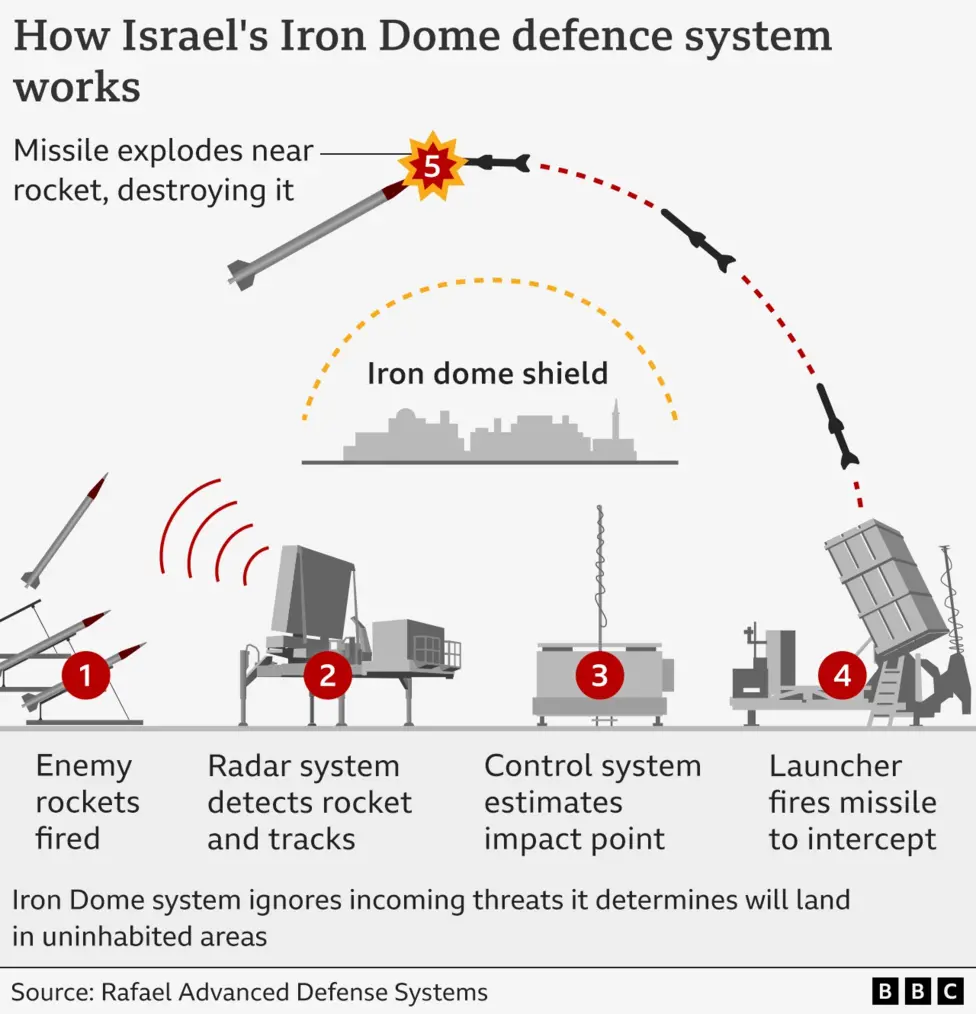The Defence Delusion: Why Britain’s Military Spending Protects Everyone Except the British
So it’s official: Britain will now commit to spending 5% of GDP on defence by 2035. After weeks of diplomatic wrangling and NATO pressure, Prime Minister Keir Starmer unveiled a plan that sees Britain fall dutifully into line.
But let’s be clear: this isn’t about genuinely protecting the British people. It’s about appeasing NATO, playing imperial dress-up, and channelling public wealth into a military-industrial complex that serves everyone but us.
Starmer’s government has framed this defence hike as a “whole-of-society” approach, 3.5% for traditional military spending, plus another 1.5% under a vague new category that sounds suspiciously like creative accounting. What that means in practice is more weapons, more foreign entanglements, and more public money footing the bill.
If Starmer truly intends to throw 5% of GDP at “defence,” here’s a radical idea: spend it on defending Britain.
Not more submarines to patrol distant waters. Not more aircraft carriers to project power we can’t afford. And certainly not more nuclear weapons, when their only promise is mutually assured destruction painted with a bold “fuck you” across the length of the missile. We need real defence, the kind that might actually protect the British people, our cities, towns, and villages when missiles start falling. And at the rate the hawks in politics are acting right now, that could be pretty soon.
If you want to call it defence spending, then actually spend it on defence.
The Israeli Model: Defence That Actually Defends

If watching the terrifying escalation in the Middle East has shown us anything, beyond the fact that sociopathic politicians keep getting elected, it’s that Israel’s Iron Dome actually works. It may not be impenetrable, but it undeniably saves civilian lives. While Britain invests in submarines designed to lurk in foreign waters, Israel has constructed something revolutionary: a defence system that genuinely defends.
Multiple layers of protection that actively intercept incoming threats, rather than simply threatening to retaliate after British cities burn.
Israel’s Iron Dome intercepts short-range rockets, shells, and mortars at ranges between 4km and 70km. Each battery contains 60-80 interceptor missiles, with radar systems that calculate which incoming projectiles threaten populated areas and which can be left to fall harmlessly on open ground. The system reportedly destroys 90% of the rockets it targets.

David’s Sling handles longer-range threats, cruise missiles and ballistic missiles from up to 300km away. Arrow 2 destroys ballistic missiles in the upper atmosphere, 50km above Earth. Arrow 3 intercepts long-range ballistic missiles outside the atmosphere entirely, with a range of 2,400km.
When Iranian missiles rained down on Israeli cities in retaliation for those unprovoked strikes, these systems intercepted them. When similar missiles eventually target London, Manchester, or Glasgow, what exactly will our Trident submarines do to help? Launch nuclear retaliation after the fact? That’s small comfort to the dead. And who, pray tell, will protect our food banks when the infrastructure collapses? After all, us plebs still need to eat, even after the world goes to shit…
Trump’s Golden Dome: At Least He Gets It

President Trump, America’s first king in all but crown, is now demanding NATO members cough up 5% of GDP on “defence.” It’s less a policy proposal than a classic racketeering shakedown. But what’s missing from the headlines is what all that extra money is really funding: a windfall for the military-industrial complex and a launchpad for Trump’s “America First” war economy.
On their website, Lockheed Martin proudly declares:
“Golden Dome for America is a revolutionary concept to further the goals of peace through strength and President Trump’s vision for deterring adversaries from attacks on the homeland.”
The system promises to detect incoming projectiles, calculate their trajectory, and obliterate them mid-air, shielding the American homeland while projecting strength abroad.

In other words, Trump’s proposed “Golden Dome” represents a conceptual revolution that has, quite astonishingly, escaped British strategic thinking altogether: the idea that defence spending should actually defend the people paying for it. Still, while we may not get a dome of our own, rest assured if we’re going to make America great again, we’ll be paying for theirs.
Trump’s system would create multiple layers of protection “across the land, sea and space,” designed to intercept missiles “even if they are launched from other sides of the world, and even if they are launched in space.” It builds on existing American missile defence systems but expands them to address hypersonic weapons, fractional orbital bombardment systems, and cruise missiles that current systems can’t handle.
The Congressional Research Office estimates that “hundreds or thousands” of space-based platforms would be necessary to provide even minimal protection against a full-scale attack. Expensive? Certainly. But at least the expense serves a defensive purpose, protecting American cities rather than threatening foreign ones.
Meanwhile, Britain continues investing in power projection capabilities that serve no defensive purpose whatsoever. We can bomb Damascus but can’t intercept a drone over Downing Street. We can launch missiles from Scotland but can’t protect Scotland from incoming missiles.
The Madness of British Priorities

“The sun never sets on the British Empire,” they used to say. But these days, it feels more like the dying glow of a once-global power squinting into the twilight. So, where exactly is Britain’s ever-increasing defence budget going? To nuclear submarines cruising the South China Sea thousands of miles from home because we need a threat to justify the cost. To aircraft carriers that require full escort groups just to stay afloat in hostile waters. And to a nuclear deterrent whose only guarantee is mutual annihilation.
Meanwhile, back home, the queues at food banks grow longer, the barracks housing ex-soldiers fall into disrepair, and local councils can’t even afford to keep the lights on. But not to worry defending the “free world” comes first. Damn those food banks, always showing up and spoiling the narrative.
But here’s the uncomfortable strategic truth that even Trump’s “Golden Dome” can’t address: the most effective attacks on modern states no longer come via intercontinental missiles. They come through asymmetric warfare through sabotage, cyber disruption, and ideologically motivated terrorism, none of which is deterred by billion-pound defence contracts.
No part of the UK’s multi-billion arsenal would have stopped the Manchester Arena bombing or the attack on London Bridge. No Vanguard submarine will detect a sleeper cell radicalised in a suburban flat. No F-35 will stop a suicide bomber on the Tube. These are not hypothetical risks, they are proven attack methods used by adversaries who study our blind spots more carefully than we study their intentions.
Worse still, by inserting ourselves into proxy wars, like our military and political support for Israel during its ongoing bombardment of Gaza, we only widen the range of threats. Iranian-linked networks already operate across Europe, including within Britain. And should Tehran choose to activate its proxies in retaliation for covert attacks on its nuclear programme, those responses won’t take the form of uniformed soldiers storming Dover. They’ll arrive silently, exploiting the very vulnerabilities we refuse to address.
Iran doesn’t need hypersonic missiles to reach London. It needs only a handful of trained operatives and a gaping hole in Britain’s overstretched and politically paralysed border enforcement. With thousands of undocumented arrivals crossing the Channel, many from regions where Iran’s intelligence services are well-entrenched, our inability to screen or track entrants is a national security failure masquerading as political charity.
Our strategic doctrine is decades out of date. We’re still equipping for Cold War battles while waging 21st-century wars against adversaries who use our openness, our laws, and our bureaucracy as weapons against us. And we’re losing, not on the battlefield, but on the home front, we keep forgetting to defend.
The recent security breach at RAF Brize Norton is telling. A group of civilian activists, armed with bolt cutters and scooters, penetrated one of the UK’s most secure airbases. They weren’t highly trained commandos. They were peace activists with a plan and a camera. If they can get in, so can others, with darker motives and deadlier payloads.
We can intercept missiles at nine times the speed of sound, but we can’t stop a small boat crossing twenty-one miles of open water.
This is not a dismissal of missile defence, it’s a call for strategic realism. Real national security starts at home. It means investing in intelligence, border integrity, infrastructure resilience, and counter-terror capabilities that reflect today’s threats, not yesterday’s.
The next attack won’t be a missile strike. It’ll be something smaller, smarter, and far more personal. And when it comes, no Golden Dome will save us.
Defence Spending That Actually Defends

Real defence spending would address these realities rather than indulge imperial fantasies. It would prioritise homeland protection over power projection, defensive capabilities over offensive threats, and British security over global influence.
A genuine British defence system would combine multiple layers: missile defence systems adapted from Israeli and American models, robust border security that actually screens arrivals, hardened critical infrastructure that can survive coordinated attacks, and the counter-intelligence capabilities necessary to identify threats before they materialise.
It would recognise that modern warfare targets civilian infrastructure rather than military installations, that asymmetric threats require asymmetric responses, and that the most sophisticated weapons systems become irrelevant when adversaries choose different methods entirely.
Most importantly, it would serve British rather than American strategic objectives. Our current procurement priorities suggest we’re building a military designed to fight alongside American forces in American conflicts rather than to protect British territory from British threats.
The Real Defence Question
The question isn’t whether Britain needs strong defences, clearly, we do. Because these “sociopathic politicians” we keep electing make sure we do. The question is whether our current defence spending actually provides them.
Spending 5% of GDP on submarines and aircraft carriers while leaving British cities vulnerable to missile attack isn’t defence spending, it’s imperial pretension disguised as security policy. Real defence would mean protecting Britain, not performing for Washington. But we all know what this is really about. True security begins at home: prioritising the defence of our own cities over the defence of someone else’s empire, investing in resilience rather than sabre-rattling. But that wouldn’t look as good at the NATO summit, would it?
But let’s get back to it…Israel’s multi-layered defence systems prove that protection is possible. Trump’s Golden Dome proposal, whatever its flaws, at least recognises that defence spending should defend the people paying for it. British policy-makers seem to have forgotten this basic principle entirely.
If we’re going to spend unprecedented amounts on defence, let’s spend them on actually defending Britain. Not just from the threats that make headlines, but from all the threats that could cripple modern society whether they arrive via hypersonic missiles or small boats, via cyber attacks or sleeper cells, via methods our current defence establishment seems incapable of imagining.
Because the most expensive defence system in the world is worthless if it’s designed to fight the wrong war, against the wrong threats, for the wrong reasons.
Real defence begins with understanding what actually needs defending, and from what. Britain’s current defence spending suggests we’ve forgotten both questions while remembering only how to look important at NATO summits.
We’ll spend billions on submarines that can’t stop a drone over Downing Street, while the queues at food banks stretch longer every week. When the real attacks come, and they will, our expensive toys won’t save us. But at least we’ll starve with pride after all the working class have been fighting the real war…well forever…
Support Independent Journalism Today
Our unwavering dedication is to provide you with unbiased news, diverse perspectives, and insightful opinions. We're on a mission to ensure that those in positions of power are held accountable for their actions, but we can't do it alone. Labour Heartlands is primarily funded by me, Paul Knaggs, and by the generous contributions of readers like you. Your donations keep us going and help us uphold the principles of independent journalism. Join us in our quest for truth, transparency, and accountability – donate today and be a part of our mission!
Like everyone else, we're facing challenges, and we need your help to stay online and continue providing crucial journalism. Every contribution, no matter how small, goes a long way in helping us thrive. By becoming one of our donors, you become a vital part of our mission to uncover the truth and uphold the values of democracy.
While we maintain our independence from political affiliations, we stand united against corruption, injustice, and the erosion of free speech, truth, and democracy. We believe in the power of accurate information in a democracy, and we consider facts non-negotiable.
Your support, no matter the amount, can make a significant impact. Together, we can make a difference and continue our journey toward a more informed and just society.
Thank you for supporting Labour Heartlands









